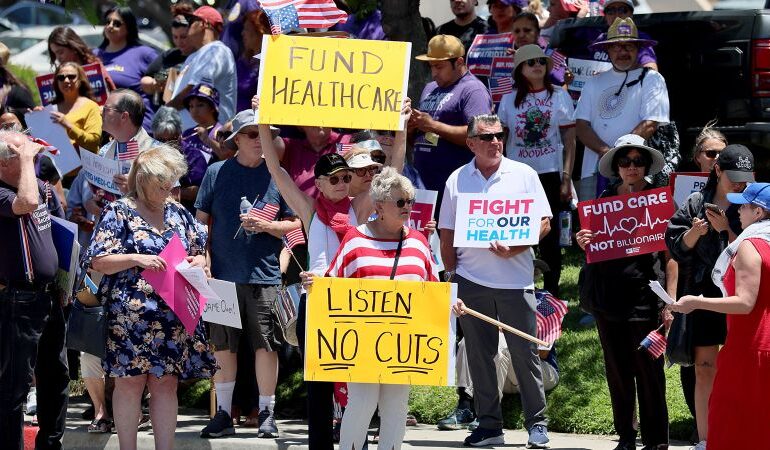Obamacare Subsidies at Risk: Millions Face Premium Hikes

The future of affordable health insurance for millions of Americans hangs in the balance as Congress approaches a pivotal decision on the continuation of enhanced subsidies under the Affordable Care Act (ACA), commonly known as Obamacare. Without an extension of these subsidies, which are set to expire at the end of this year, premiums could rise by an average of 75% in 2026, prompting concerns about access to care for low-income families.
Millie Haas, a 58-year-old resident of Okeechobee, Florida, embodies the critical impact of these subsidies. Living with multiple health conditions, including three types of cancer, she relies on affordable coverage that currently costs her $124 monthly due to the enhanced federal assistance. “For me, no insurance is death,” Haas explained, highlighting the financial strain that could result from losing this lifeline. This situation is not unique; approximately 24 million Americans signed up for 2025 coverage through Obamacare, with around 92% receiving financial assistance.
The urgency for congressional action is heightened by the looming deadline of September 30, 2023, when the federal government must secure funding to avoid a shutdown. Renewing these subsidies, estimated to cost about $30 billion for one year, has become a contentious issue among lawmakers. While many Democrats and some moderate Republicans advocate for an extension, fiscal conservatives within the Republican Party resist any further aid to the program.
Senate Majority Leader John Thune and House Speaker Mike Johnson have indicated that the issue of extending subsidies should not be tied to the government funding debate. Johnson stated, “We have time to have that debate,” suggesting that the expiration of subsidies could be addressed separately. In contrast, many Democrats warn that they will not support a stopgap funding bill without provisions to extend the enhanced assistance.
As the open enrollment period approaches in early November, many consumers will begin to see their potential premiums for 2026. Advocacy groups like the Center on Budget and Policy Priorities emphasize that the prospect of significantly higher premiums could deter individuals from enrolling. “People either come in during window shopping or open enrollment and say, ‘Oh my word, that is not something I can afford,’” said Jennifer Sullivan, director of health coverage access at the organization.
State exchange officials are also voicing concerns. Pat Kelly, executive director of Your Health Idaho, warned that confusion surrounding the subsidies could lead to an increase in the uninsured population. His state alone anticipates that about 25,000 residents may drop their coverage if the enhancements lapse.
The subsidies were originally enacted as part of the pandemic relief package during the Biden administration in 2021 and have been instrumental in making health insurance more accessible for many Americans. However, the enhanced support has also raised concerns about potential fraud and abuse, which critics argue could undermine the program’s integrity. Representative Andy Harris of Maryland, a member of the conservative House Freedom Caucus, has cited these risks in advocating for a reconsideration of the subsidies.
Should the enhanced subsidies expire, the impact could be severe. A Congressional Budget Office analysis predicts that around 4 million additional individuals could become uninsured by 2034, compounding the challenges already faced by those without coverage. Many of those affected live in states like Texas, Florida, Georgia, and North Carolina, where the loss of coverage would be disproportionately felt.
In Georgia, for instance, individuals like Anna, a 34-year-old who relies on an Obamacare policy for her health needs, fear the prospect of a 50% increase in premiums. “That may not seem like much to some people,” she noted, “but when you’re trying to live and pay bills, that makes a difference.”
As Congress deliberates, some Republican lawmakers are acknowledging the potential backlash they could face if the subsidies are allowed to expire. Virginia GOP Rep. Jen Kiggans has joined a bipartisan effort to extend the subsidies, emphasizing that families in her district could see their premiums rise by over $2,500 without renewal.
In the coming weeks, the decisions made by Congress will not only determine the fate of health insurance affordability for millions but also reflect the broader political landscape as the country approaches the next election cycle. Lawmakers are urged to consider the real-life implications of their choices on constituents like Haas, who depend on these subsidies for their health and financial stability.






